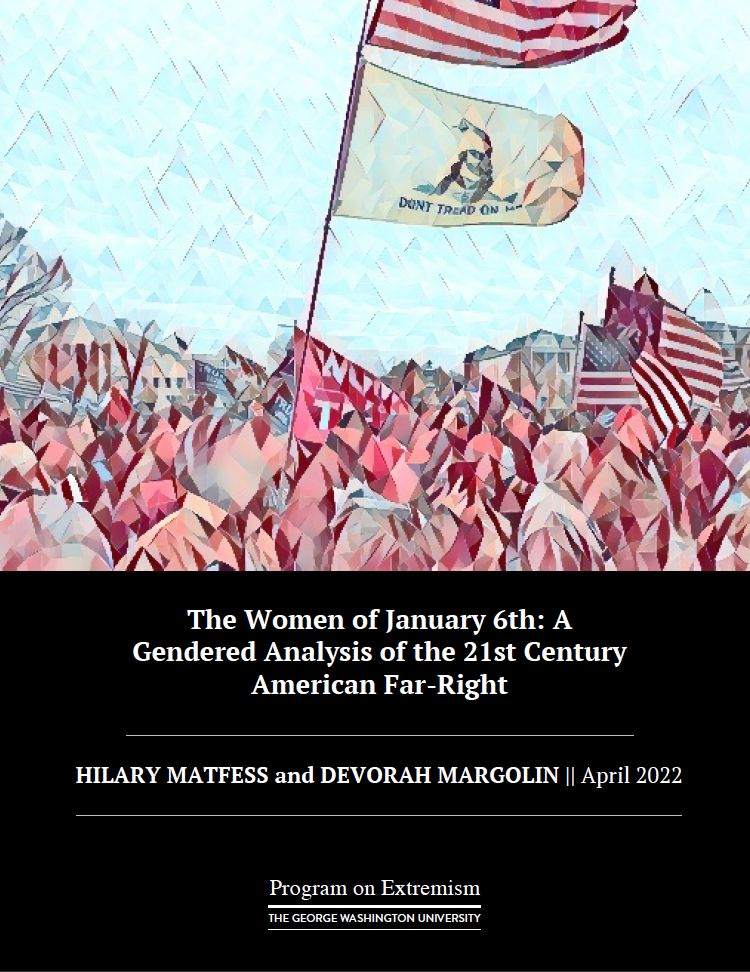This report contextualizes women’s participation in the events of the January 6th Capitol Hill Siege within the broader history of women’s participation in American far-right extremism. This report underscores that women have played, and continue to play, active and important roles in American far-right extremist groups. In this movement, women are often incorporated in complementary, rather than egalitarian, roles. Because they are rarely on the ‘frontlines’ of far-right extremist groups’ activities, women’s contributions have often been marginalized or underplayed. However, women’s participation in support roles and their place in right-wing extremist propaganda have been important contributions to extremist groups’ activities and capabilities. In examining women’s participation in the events of January 6th, this report probes how far-right extremist movements in the United States operationalize gender norms and identifies aspects of commonality and difference between groups.
The report’s key findings are as follows:
- As of March 15, 2022, 102 women have been arrested for crimes related to the January 6th Capitol Siege. Women represent 13% of the total 766 federal cases and were on average older than their male counterparts at 44 years of age, coming from 28 US States.
- 33 women faced felony charges; 69 women were charged with misdemeanors.
- The Department of Justice has secured 41 convictions against women, all through guilty pleas, as of March 15, 2022. This includes 1 felony and 40 misdemeanors.
- 24 of these convictions against women have been sentenced.
- Only 7 women, all for misdemeanor charges, have been sentenced to jail time.
- To date, jail sentences between men and women are relatively compatible. Women were on average sentenced to 45.5 days in jail, and men were sentenced on average to 48.8 days in jail.
- 82% of the cases brought against women included information connected to social media. Social media and the online environment has given women new on-ramps and ways of acting as spokespeople for far-right movements, often making their messaging appear more palatable to mainstream audiences.
- Nearly 1 in 10 women in the dataset are alleged to have engaged in or conspired with others to carry out violence on January 6th. This may highlight one of the key fissures in the far-right on how to incorporate women. While some groups have included women in front-facing positions, many argue against placing women on equal footing with men and instead suggest that women should play subordinate, but complementary roles. Women’s actions on January 6th have represented a break from the norm among right-wing extremists.
- This report explores the gendered nature of defenses used by women accused of crimes related to the Capitol Siege and how this plays into our understanding of far-right ideologies. Gendered frames have been leveraged by women as they navigate the judicial system. In some cases, the defense has articulated narratives emphasizing their client’s naivety, vulnerability, and traditionally feminine roles. The effect of these appeals can be to depoliticize women’s activities in support of far-right movements.
- Finally, this report emphasizes that a gendered analysis is necessary in order to have a holistic understanding of the events of the January 6th Capitol Siege and women’s participation in far-right extremism in the United States.


